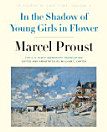Against Saint Beuve
Meer oor hierdie e-boek
Published by Gallimard on the eve of the New Novel, the volume drew applause for its lively style but also suspicion, since Proust’s sweeping claim that truth lies only inside the self can slide toward a soft nihilism in which common standards dissolve; by lifting personal perception above shared judgment, he risks turning art into a hall of mirrors where anything can pass for insight. For readers today, Contre Sainte-Beuve offers a bracing prelude to modernist relativism and a warning about its shadow, reminding us that a brilliant defense of inner vision may leave the outside world unmoored and drifting.
Proust insists that genuine art sprouts from a hidden core untouched by social chatter. He sketches Balzac, Baudelaire, and Flaubert to show that an author’s finest pages may contradict his public life. Yet, by celebrating private sensation as the ultimate standard of value, Proust undermines all shared foundations, transforming taste into law and foreshadowing the soft nihilism that would permeate French modernism. Thus, these essays serve as both a rallying cry for creative freedom and an early warning about the consequences of allowing feeling to reign supreme.
This critical reader’s edition presents a modern translation of the original manuscript, crafted for the contemporary reader with lucid language and streamlined sentences that illuminate Proust’s intricate French syntax and period‑specific allusions. Supplementary material enriches the text with autobiographical, historical, and linguistic context, including an afterword by the translator on Proust’s personal history, cultural impact, and intellectual legacy, an index of the philosophical concepts he weaves—highlighting his explorations of memory, time, and the influence of Henri Bergson—a comprehensive chronological list of his published writings, and a detailed timeline of his life, emphasizing the friendships and social circles that shaped his artistic vision.








